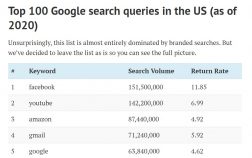The world’s biggest time waster or a life changing gateway to a happier life? Facebook has its friends and foes but there’s a healthy middle ground that makes a lot of sense to the thoughtful, sensible user, writes Keryn Curtis.
You’d need to have been living under a rock for the last ten years not to have at least had some passing exposure to the social networking juggernaut that is Facebook. Its extraordinary success (there were 1.35 million active users worldwide as of the third quarter of this year, 13.4 million from Australia alone) demonstrates its appeal right across the age spectrum with users over the age of 50 representing the fastest growing segment.
But the online world is definitely divided between people who love Facebook and those who don’t want a bar of it. Detractors tend to dismiss it as time wasting on superficial topics like ‘what I had for breakfast’… something they feel certain nobody cares about, much less needs to know. And the concern is that people spend so much time on their ‘virtual’ Facebook relationships that they are opting out of the real world and missing the opportunity for ‘real’ face to face relationships. There is also criticism and concern about privacy and the increasing use of Facebook as a method of subscribing to newsletters and other website services.
“An online social network like Facebook is first and foremost a social environment and the same rules of social etiquette and good manners still apply.”
There’s no doubt that mindless Facebook use and careless management of your privacy settings can expose you to plenty of problems from losing friends, losing (or not getting) jobs and getting targeted by unscrupulous marketers. And there is the important health matter of getting up from behind your screen, getting fresh air and exercise, and generally engaging with life.
But on the flip side, for sensible people, Facebook can provide an extraordinary vehicle for enriching and improving lives too. Personally, I’m a big fan. Facebook enables me to keep in touch with old friends who for various reasons (like geographical proximity, time limitations) I simply can’t get to see very often. It’s also brilliant for keeping up with acquaintances who aren’t close friends but are still people you’d like to keep up with and see from time to time, even once a decade! Think about old workmates; people you went to school, college or university with; played sports or did other activities with; people who were formerly neighbours.
Coming from a large extended family in disparate locations, Facebook has enabled me to meet and get to know dozens of cousins and other relatives I didn’t even know I had. It’s been wonderful. We have our own separate ‘Facebook group’ and we even had our first face to face reunion last year to which 73 of us – aged from 3 months to 86 years – came from all corners of the country. Generations of family members across the world say that Facebook enables them to ‘stay in touch’ and often highly engaged with parents, grandparents, children and grandchildren, despite age and location differences.

The new facilitator
Increasingly, Facebook is where I learn things and remain informed as friends share news and commentary from a wide cross section of local and international media and other sites. It’s how many events are organised these days, by individuals but also by institutions, businesses and interest groups.
OK, I will admit to being on the extrovert end of the sociability scale but Facebook doesn’t mean you have to have loads of ‘friends’ or even commit to having much contact with them. You can keep it as small or as big as you like; as open or closed as you like; and as frequent or occasional as you like. Once you understand how it works, you can make it work in a way that suits you.
The golden rule is pretty simple really. An online social network like Facebook is first and foremost a social environment and the same rules of social etiquette and good manners still apply. You are in a public, social setting – or at the very least a shared space – with your friends. Be considerate and respectful of their feelings; never rude or hurtful. If someone addresses you directly (via direct private message), be sure to reply. Don’t be dishonest; chances are someone will know and call you out on it. Think about the information you share, the people you invite or accept into your circle, the topics you discuss and the language you use. Just as you would in any other social situation.
If you need any guidance, there is plenty of ‘Facebook etiquette’ advice available on the web, as well as ‘how-to guides’ for getting you started.
Here are a couple of sources and resources that might be useful:
Facebook for Dummies : http://au.wiley.com/WileyCDA/WileyTitle/productCd-1118791789.html
Facebook and Twitter for Seniors for Dummies http://au.wiley.com/WileyCDA/WileyTitle/productCd-1118921178.html





